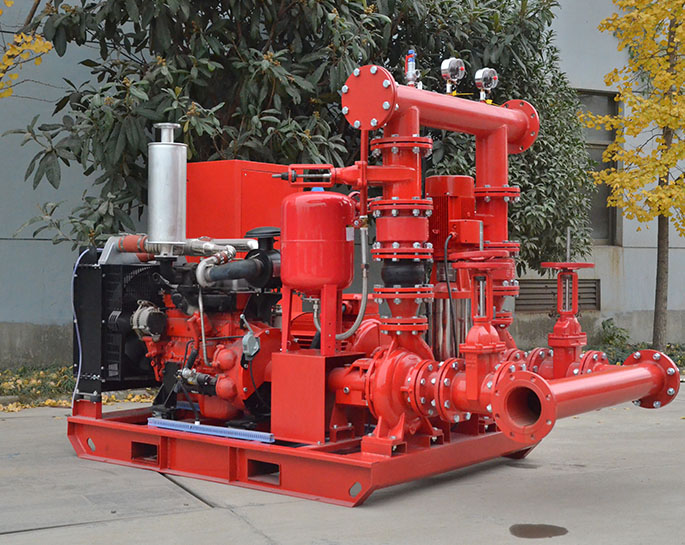What should be paid attention to in the use of fire pumps?
The use of fire pumps is a crucial component of fire protection systems, and it's essential to operate them correctly to ensure their effectiveness in case of a fire emergency. Here are some key considerations for the proper use of fire pumps:
-
Training and Personnel: Ensure that personnel responsible for operating the fire pump are trained and knowledgeable about its operation. Training should cover the use of controls, start-up procedures, and shutdown procedures.
-
Emergency Procedures: Establish and communicate clear emergency procedures for activating the fire pump in the event of a fire. Ensure that designated personnel know how to initiate the pump and respond quickly to alarms or fire detection systems.
-
Regular Testing: Conduct regular tests and inspections of the fire pump to ensure it is in proper working order. This includes weekly or monthly flow tests and annual full-load tests. Testing should be carried out in accordance with local codes and standards.
-
Maintenance: Prioritize routine maintenance to keep the fire pump in optimal condition. This includes lubricating moving parts, checking for leaks, inspecting electrical components, and verifying the condition of belts, if applicable.
-
Power Supply: Ensure that the fire pump has a reliable power supply. Backup power sources such as diesel engines or generators should be regularly tested to ensure they function when needed.
-
Fuel Supply: If the fire pump is diesel-powered, maintain an adequate and clean fuel supply. Diesel fuel should be treated to prevent contamination and algae growth.
-
Monitoring and Alarms: Install monitoring systems and alarms to alert personnel to any issues with the fire pump or the water supply. This includes monitoring water pressure, pump status, and system alarms.
-
Valve Operation: Familiarize personnel with the operation of suction and discharge valves. Ensure that these valves are open when the fire pump is in operation and closed when not in use.
-
Pressure Control: Understand the required pressure and flow rates for the specific fire protection system. Ensure that the fire pump can provide the necessary pressure to the sprinkler system or hydrants.
-
Remote Operation: Some fire pumps may be capable of remote operation. Ensure that personnel authorized to operate the pump remotely are trained and have secure access to the control system.
-
Documentation: Keep detailed records of all tests, inspections, and maintenance activities related to the fire pump. This documentation is essential for compliance, insurance, and auditing purposes.
-
Compliance: Stay informed about local fire codes and regulations to ensure that the fire pump system remains compliant with current standards. Compliance is critical for safety and legal reasons.
-
Spare Parts: Maintain a stock of critical spare parts to minimize downtime in case of component failure. Ensure that these parts are compatible with your specific fire pump model.
-
Regular Inspections: Schedule regular inspections by qualified technicians or engineers to assess the overall condition of the fire pump system and recommend any necessary repairs or upgrades.
-
Communication: Establish clear communication channels and procedures for coordinating with local fire departments in case of a fire emergency. They may need to be aware of the status of your fire pump system.
Proper use and maintenance of fire pumps are essential for the safety of occupants and the protection of property in the event of a fire. Regular training, testing, and maintenance procedures should be followed diligently to ensure the reliability of the fire pump system.


.png)
.png)

.png)


